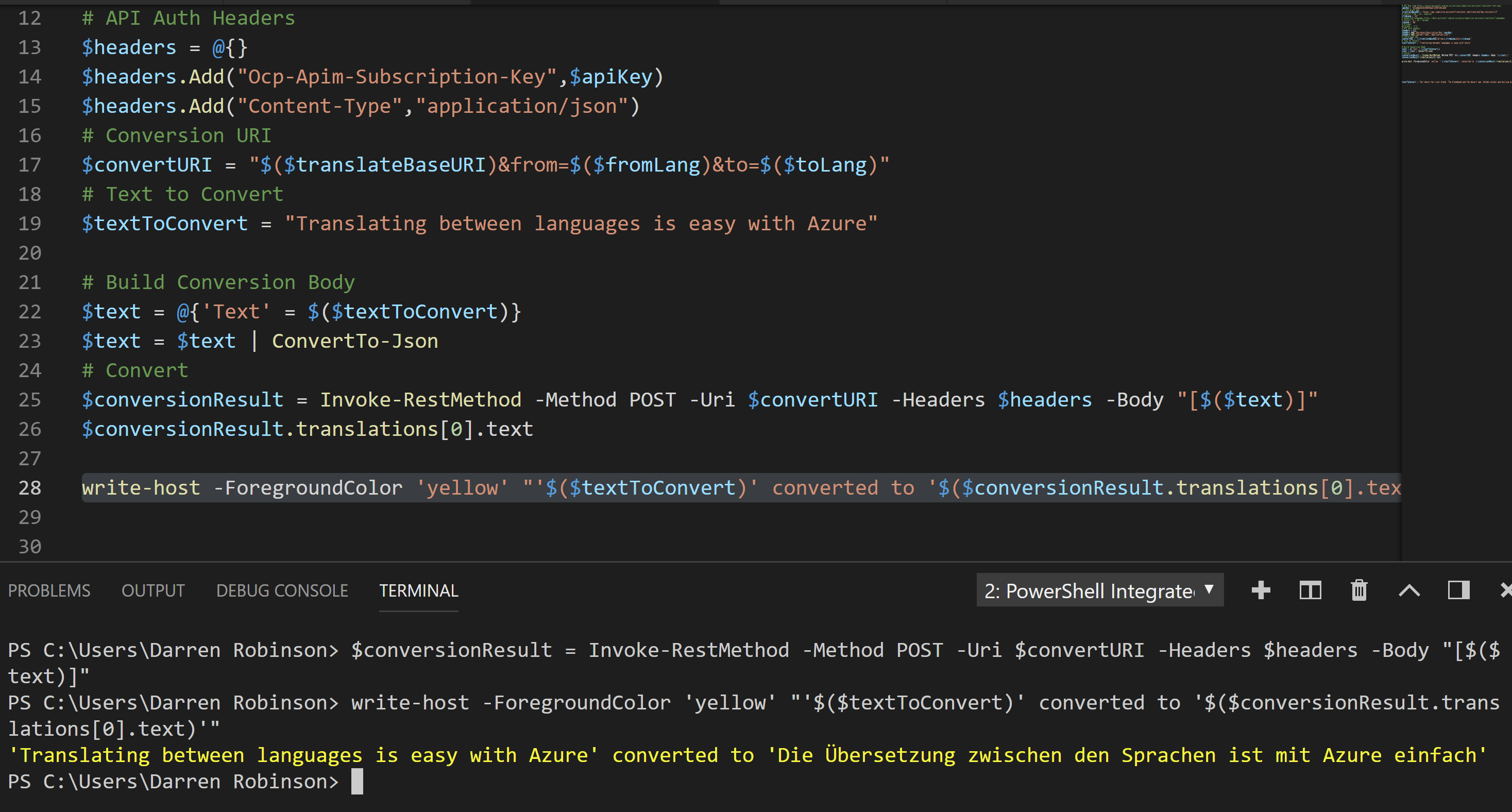
Introduction
Over the last few months whilst developing my Voice Assistant for Microsoft Identity Manager I’ve been leveraging a number of the Azure Cognitive Services. Each one has its own nuance as they all appear to be in differing iterations of maturity. My first hurdle when looking to leverage one, is the examples provided. Often the samples are in languages I’m not fluent in and pretty much always there is no examples of using PowerShell and the awesome Invoke-RestMethod call to interact with them. Of course there are the PowerShell Modules, but I normally like to go direct and not have dependancies on a module.
Once I’ve worked it out how to leverage each service with PowerShell I’ve posted how to set up an API call for future reference. Here are the previous ones;
- Utilising Azure Speech to Text Cognitive Services with PowerShell
- Utilising Azure Text to Speech Cognitive Services with PowerShell
The final service I was looking to leverage (with respect to Audio and Text) is the Language Translator. This is yet another API with its own quirks and it took me longer than it should have. So as I know I’ll need it again in the future and I’m sure it will help others, I’m detailing it here.
Getting Started with the Microsoft Translate Text Cognitive Service
Like the other Cognitive Services I’ve detailed in the past, the Translator has its own API which is currently up to version 3. Obtain a Translator Text API Key free trial from here.
Here is an example PowerShell script that you will be able to leverage as a getting started guide to interfacing with the Translator Text API with PowerShell. Once I got it working it is quite simple. Here it is;
- update Line 2 for your API key
- update Lines 6 and 9 for your From and To languages
- update Line 17 for the text string you want to convert
Summary
Updating a few lines and stepping through the script we can see that it is possible to quickly leverage the Text Translator service to convert (in this example) from English to German.

Interestingly Klingon is an option to convert to too. Change Line 9 from ‘de‘ to ‘tlh‘ if you want to try it for yourself. It looks like quite a concise language 😉
'Translating between languages is easy with Azure' converted to 'mugh SabtaHbogh Hol ngeD Azure'
